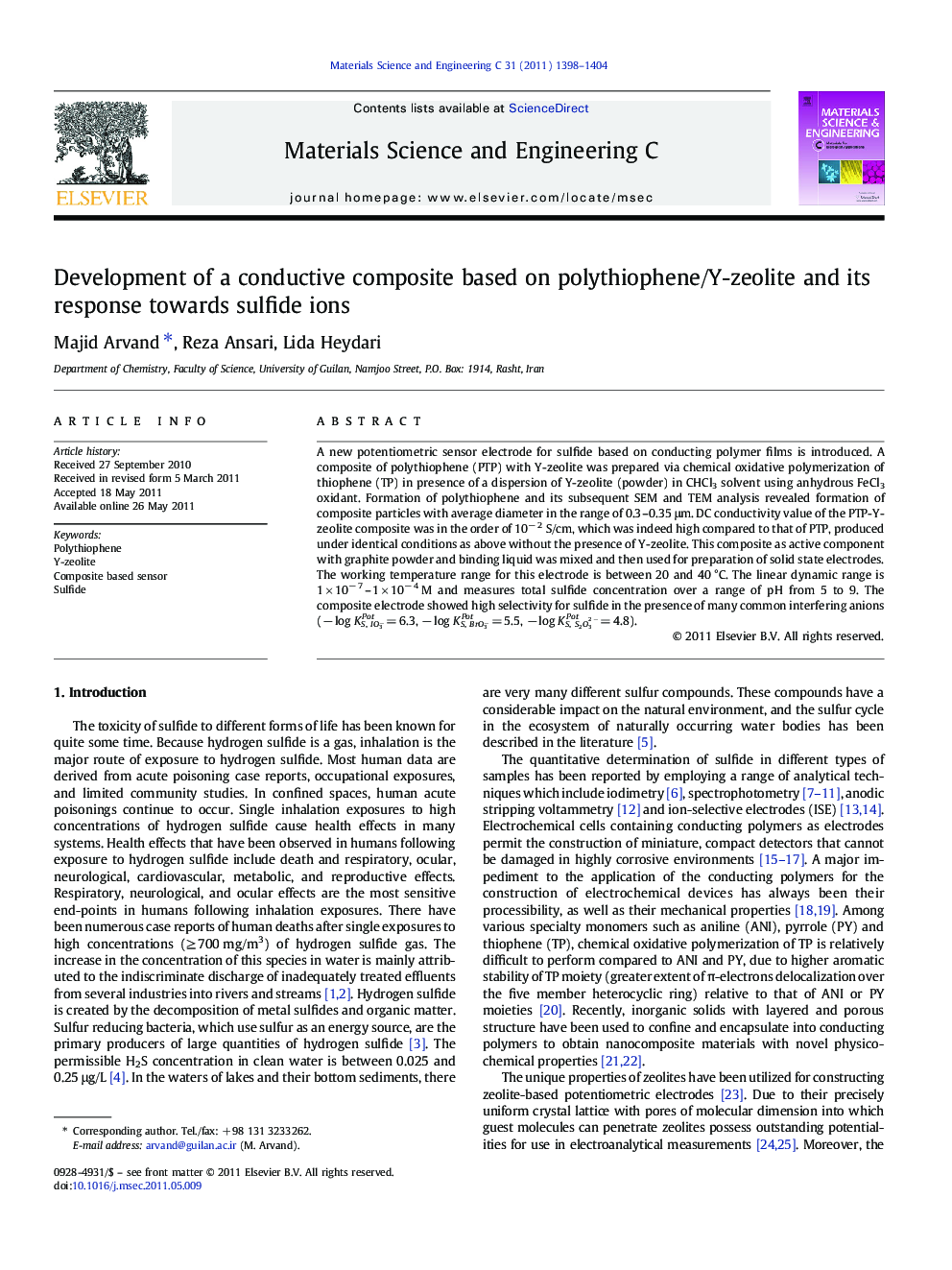| Article ID | Journal | Published Year | Pages | File Type |
|---|---|---|---|---|
| 1429726 | Materials Science and Engineering: C | 2011 | 7 Pages |
A new potentiometric sensor electrode for sulfide based on conducting polymer films is introduced. A composite of polythiophene (PTP) with Y-zeolite was prepared via chemical oxidative polymerization of thiophene (TP) in presence of a dispersion of Y-zeolite (powder) in CHCl3 solvent using anhydrous FeCl3 oxidant. Formation of polythiophene and its subsequent SEM and TEM analysis revealed formation of composite particles with average diameter in the range of 0.3–0.35 μm. DC conductivity value of the PTP-Y-zeolite composite was in the order of 10− 2 S/cm, which was indeed high compared to that of PTP, produced under identical conditions as above without the presence of Y-zeolite. This composite as active component with graphite powder and binding liquid was mixed and then used for preparation of solid state electrodes. The working temperature range for this electrode is between 20 and 40 °C. The linear dynamic range is 1 × 10− 7 – 1 × 10− 4 M and measures total sulfide concentration over a range of pH from 5 to 9. The composite electrode showed high selectivity for sulfide in the presence of many common interfering anions (− log KS, IO3−Pot = 6.3, − log KS, BrO3−Pot = 5.5, − log KS, S2O32 −Pot = 4.8).
► We examine PTP-Y-zeolite composite as an active component for sulfide-selective electrode. ► Stability of PTP moieties improves upon composite formation with Y-zeolite. ► We find the PTP-Y-zeolite-FeCl3system shows appreciably high DC conductivity value. ► High conductivity in PTP-Y-zeolite composite is a unique feature of the proposed system.
